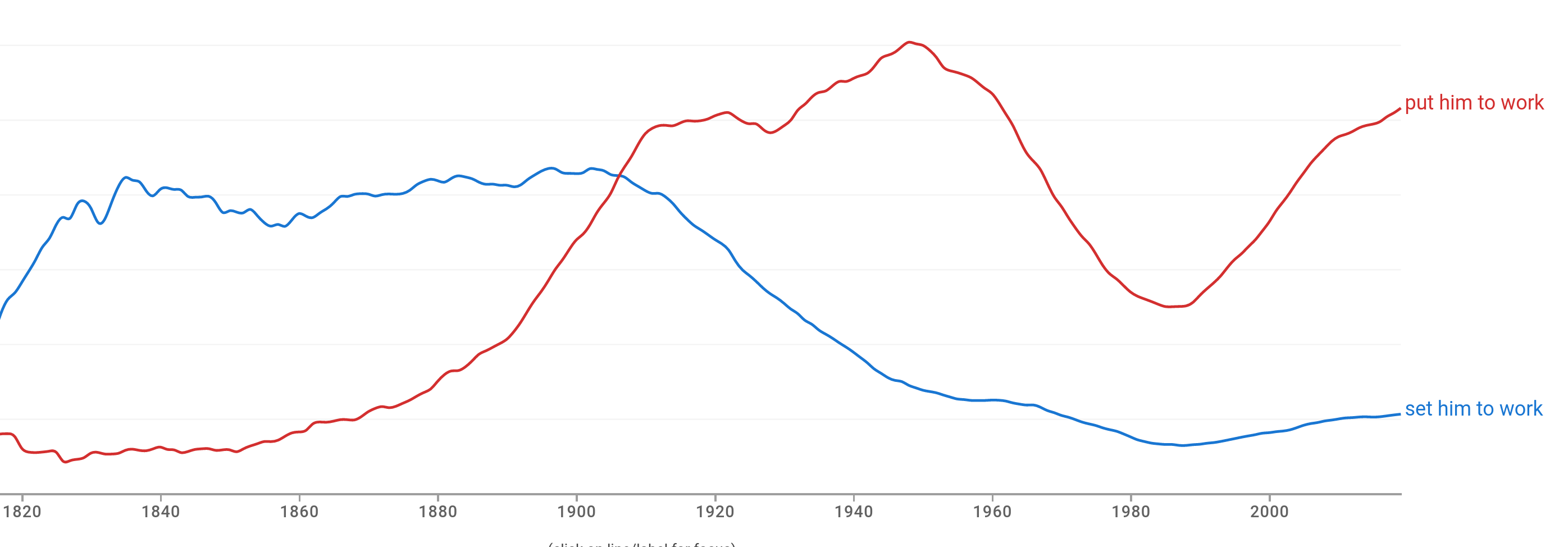Today I heard someone (a non-native speaker) from Australia use the following structure:
"I will put him to reading in English for 20 minutes before supper."
He wanted to mean "He will get his son to read in English, because he wants him to improve his English.", but he formed a sentence using "put". I looked it up, yes, there is such a structure "to put someone to something", which has a causative meaning.
I don't see it used often, but I still wonder, is it simply another way of saying "make someone do something"?


